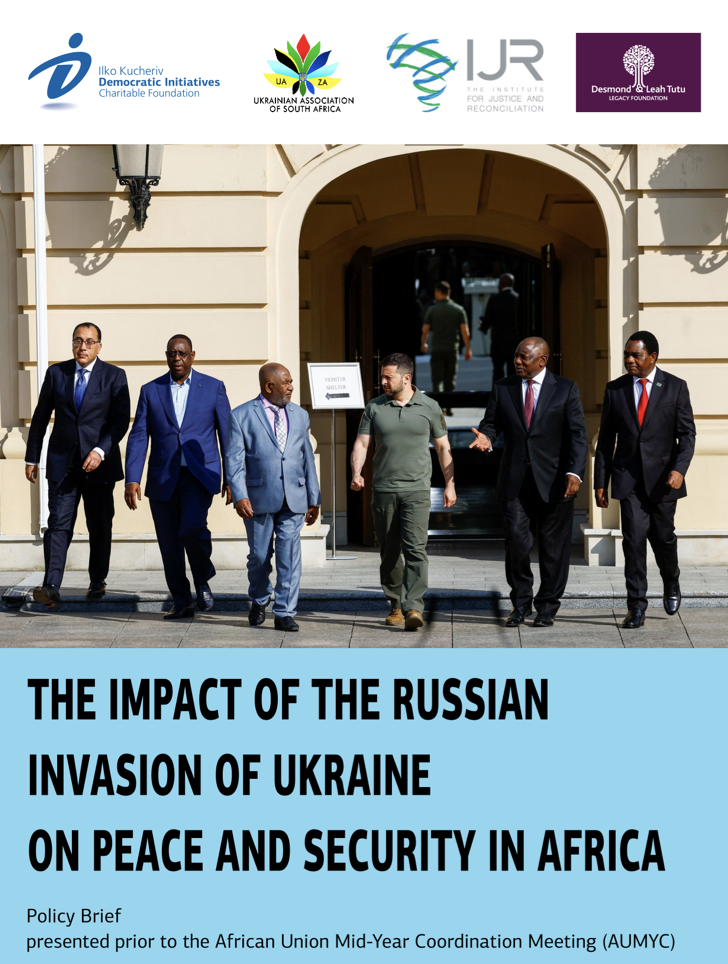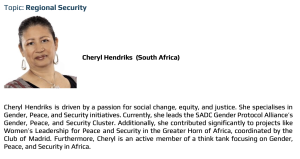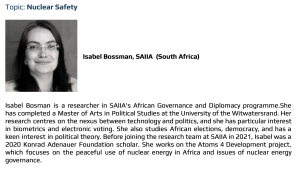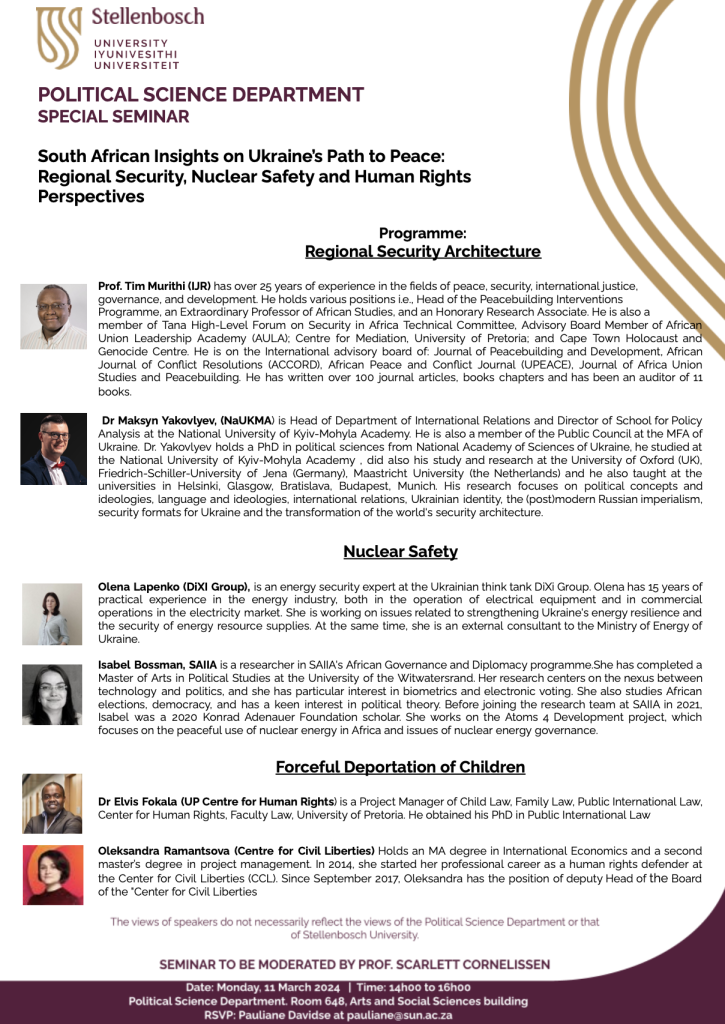Side-event “The African Peace Mission and Ukraine Peace Formula: Strategic Engagements on Regional Security, Nuclear Safety, and Human Rights” before the upcoming AU Mid-Year Coordination Meeting
Date: 18 July 2024
Place: Accra, Ghana
A group of Ghanaian, South African, and Ukrainian civil society organisations is calling on the African Union and delegates of African states to lead the way for safer nuclear energy development, better protection of children, and fewer opportunities for nuclear-armed states to threaten disarmed nations, through the reform of the United Nations Security Council.
Experts from various institutions collaboratively developed three policy briefs in support of the African Peace Mission and Ukraine Peace Formula. These briefs address UN reform, the safety of nuclear power stations, and the protection of children during armed conflicts. The recommendations were presented at the seminar “The African Peace Mission and Ukraine Peace Formula: Strategic Engagements on Regional Security, Nuclear Safety, and Human Rights” ahead of the African Union Mid-Year Coordination Meeting taking place on 18-21 July in Accra.
The experts specifically, call on the AU and African states to:
1. Initiate UN reform that reduces the power of the veto-right.
This means empowering the United Nations General Assembly to overrule a veto with a 2/3 majority.
Ukraine’s experience showed that while the majority of countries condemned the Russian invasion of Ukraine (over 141 states), Russia could block any UN action to defend Ukraine by using its veto at the UNSC. Changing the veto power distribution would help ensure global peace if any veto-holding country starts military aggression against another state.
The mechanism for a provisional review and amendment of the UN Charter is also built in Article 109, which enables a special “Charter Review Conference” to be convened by a two-thirds majority of the UN General Assembly and a single vote from the nine-member Security Council.
Such a vote cannot be vetoed by the permanent members and would be relatively democratic, since Article 109 states that “each member of the United Nations shall have one vote”.
2. Act immediately to uphold international obligations on non-proliferation and stop the aggression of nuclear-armed states against denuclearised nations.
In 1994, Ukraine gave up its nuclear arsenal, the third largest in the world at the time, in exchange for security assurances from the USA, the UK, and Russia. Russian aggression against Ukraine endangers the core of international non-proliferation, increasing the risk of non-nuclear nations pursuing their own weapons of mass destruction. In 2023, global military spending increased by 7%, which means less funds for socio-economic development around the world.
3. Protect peaceful nuclear power plants by approving new binding international legislation that prohibits military attacks on nuclear facilities. Nuclear technology is a potential option to support African economic development.
The occupation of the largest operational nuclear power plant in Europe by Russian military forces, in violation of all nuclear safety principles, must be stopped and never repeated.
Many African countries recently voted for a UN resolution calling on Russia to remove its military forces from the Ukrainian nuclear power station.
4. Recognise that children are the first victims of military conflict. As of June 2024, Russia has unlawfully and forcibly deported 19,546 Ukrainian children.
Post 2022, Russia has approved a new legislation allowing the change of citizenship, name, surname, and date of birth of Ukrainian children without parental consent. Ukrainian children have been sent to 57 regions of Russia, with some already adopted into Russian families. Despite support from UN institutions, the International Red Cross, religious leaders such as the Vatican, and individual states like Qatar, only 388 children have been returned in nearly three years. There is a lack of effective mechanisms for their return [https://childrenofwar.gov.ua/en/].
5. We call on the Africa Peace Mission to continue working on the points listed in this statement and to act on implementing the above
Russia militarily invaded Ukraine in 2014, and with the lack of international response to its aggression, it escalated its military invasion to a full-scale war in 2022. The collaborative platforms for experts have been initiated by the Institute of Justice and Reconciliation, the Desmond and Leah Tutu Legacy Foundation, the Democratic Institute Foundation (DIF), and the Ukrainian Association of South Africa (UAZA). More than twenty experts from different fields are partnering for a better future for the African continent.
For more information about the statement or the initiative please contact Dzvinka Kachur [email protected]


















